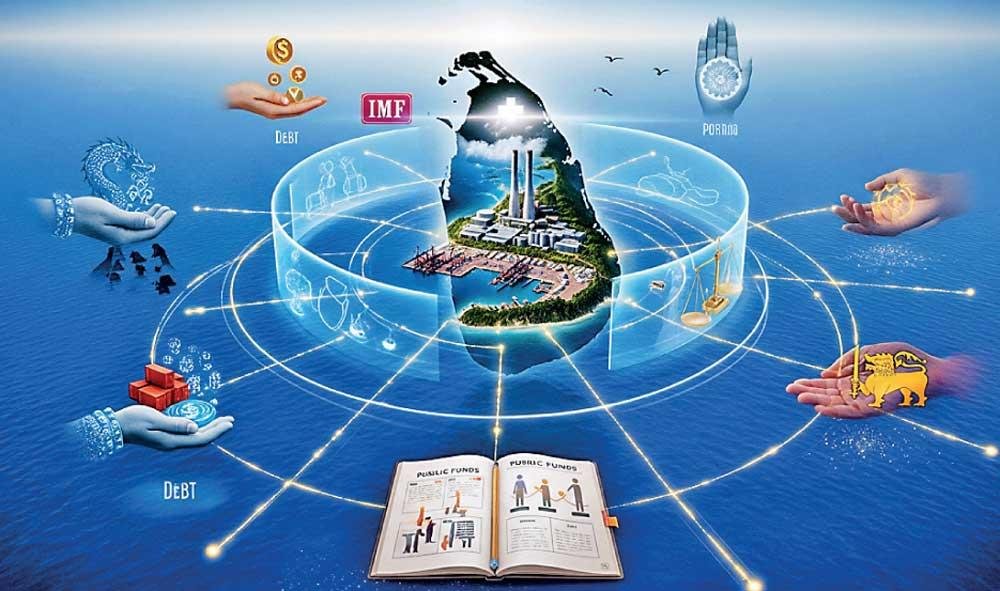
Neutrality as a Strategic Imperative: Charting a New Path for Sri Lanka in the Indian Ocean Geopolitical Landscape
Amidst an increasingly volatile global geopolitical environment, Sri Lanka situated at the heart of vital Indian Ocean maritime routes faces a critical juncture. A strategic shift is no longer just a diplomatic option; it has become essential for protecting national sovereignty, fostering internal unity, strengthening economic resilience, and maintaining long-term stability in a region marked by intensifying power rivalries.
As an island nation positioned along one of the world’s most crucial shipping corridors, Sri Lanka finds itself caught in escalating regional and global competition. This article argues that embracing formal, permanent, and politically enshrined neutrality similar to Switzerland’s model offers the most viable path toward ensuring Sri Lanka’s future security, sovereignty, and prosperity.
Through an examination of historical precedents, geopolitical dynamics, and economic necessities, this piece outlines how neutrality can reduce foreign interference, promote internal reconciliation, enhance economic sustainability, and secure Sri Lanka’s strategic interests in an increasingly contested Indian Ocean region.
Geostrategic Significance
Sri Lanka’s location across major sea lanes linking the Middle East and East Asia has historically attracted foreign influence from as early as the 1st century BC to colonial interventions in the 16th century. Today, this strategic position places the country within a high-stakes competition involving regional power India, global rival China, and major players like the United States.
Sri Lanka’s recent economic challenges and external financial dependencies have exposed the limits of its traditional non-aligned stance. This vulnerability underscores the urgency of evolving from a loosely defined non-alignment to a clearly articulated and internationally recognized neutral position.
Understanding the International Law of Neutrality
The international law of neutrality legally protects states that refrain from participating in armed conflicts. Codified in the 1907 Hague Convention (V) and supported by customary international law, it defines both the rights and obligations of neutral states. The primary right is the inviolability of a neutral state’s territory, while core responsibilities include:
Avoiding participation in war,
Maintaining a credible defense,
Refraining from providing troops to belligerents, and
Prohibiting the use of national territory by warring states.
It is important to note that these laws apply to international conflicts not internal civil unrest and do not restrict neutral states from supporting UN-authorized peacekeeping missions. Neutrality law is crucial in upholding sovereignty, preventing conflict spillover, and allowing countries to serve as impartial mediators.
Switzerland’s Model of Armed Neutrality
Switzerland’s status as a permanently neutral state was formalized in the early 19th century following Napoleon’s defeat. Recognized by the Treaty of Paris (1814) and reinforced by the Congress of Vienna (1815), this neutrality turned Switzerland into a buffer state amid Europe’s rival powers.
Switzerland has since embedded neutrality into its constitution (Articles 173 and 185 of the 1999 Federal Constitution), affirming its commitment to external security and national independence. Crucially, Switzerland maintains a robust military force to defend its neutrality—underscoring the principle of “armed neutrality.” This model has allowed the country to navigate centuries of European conflict, including both World Wars, while preserving peace and prosperity.
Why Sri Lanka Needs a Strategic Recalibration
In the post-Cold War, multipolar global order, Sri Lanka’s non-aligned status has become increasingly difficult to maintain. Surrounded by growing geopolitical interests, the nation is under constant pressure from major powers.
Sri Lanka’s ties with India are deeply rooted but complicated, particularly due to India’s concerns over Chinese influence in the region. A formal commitment to neutrality could help ease these concerns by assuring India that Sri Lanka will not enter into military alliances with external powers, particularly China, thereby fostering mutual trust.
On the other hand, while Chinese investments through the Belt and Road Initiative (BRI) such as the Hambantota Port and Colombo Port City provide economic opportunities, they also contribute to debt-related vulnerabilities and strategic anxiety among Sri Lanka’s other partners. Neutrality offers a framework for engaging with all nations including China, India, the US, Japan, and the EU purely on economic and developmental terms, reducing the likelihood of being caught in great-power rivalries.
Moreover, by positioning itself as a neutral state committed to ensuring freedom of navigation in the Indian Ocean, Sri Lanka could enhance its standing as a guardian of global trade routes, gaining international respect and strategic support from all maritime powers.
